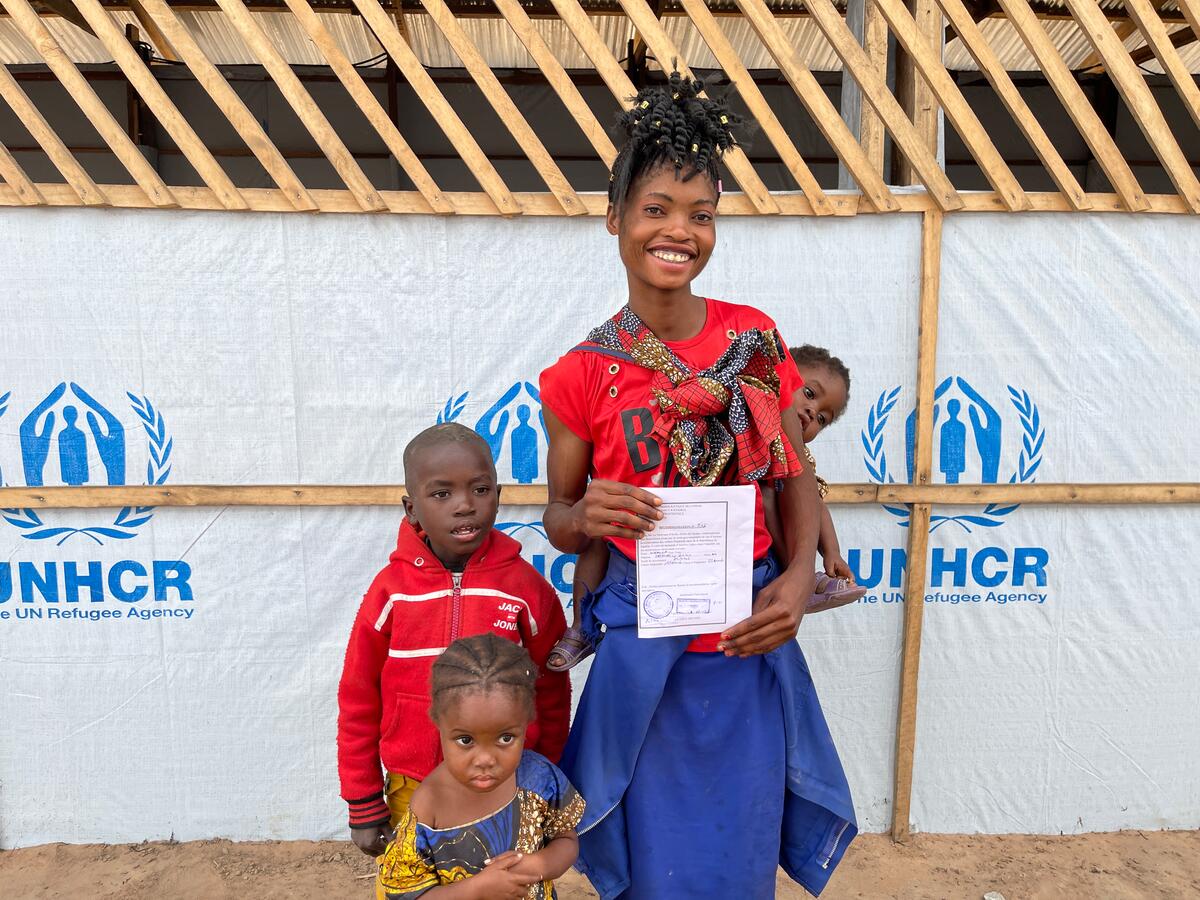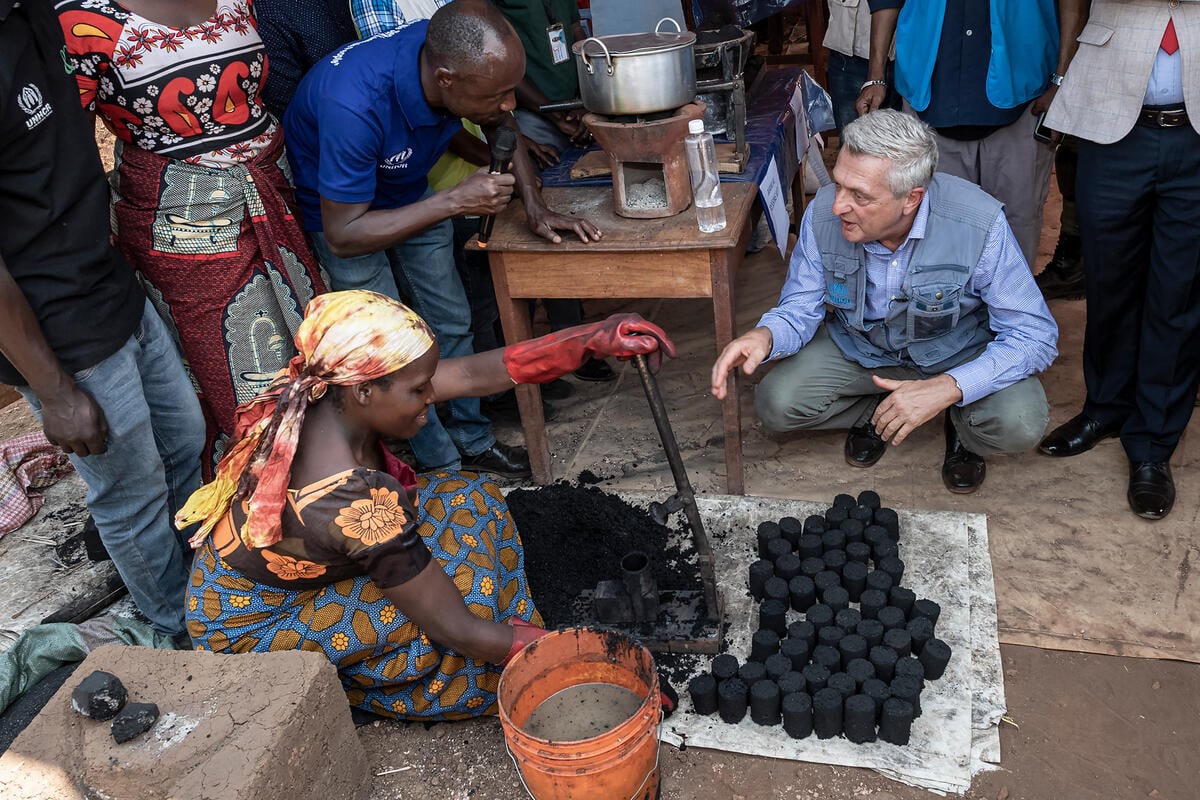Tough choices for Afghan refugees returning home after years in exile
Tough choices for Afghan refugees returning home after years in exile

2016 saw a surge in the return of Afghan refugees from Pakistan, which has been hosting large numbers of Afghan refugees for four decades. More than 370,000 registered Afghan refugees returned home from Pakistan in 2016 – a 12-year high – compared to just over 58,000 the year before. Pakistan continues to host some 1.3 million registered refugees.
UNHCR has just completed an analysis of returnee monitoring data to better understand the background and current situation of refugee returnees in Afghanistan. The study was based on face-to-face interviews with 4,285 people at their point of arrival and telephone interviews with some 1,300 returnees. It was based on random sampling after people had been back for three months.
According to the data, refugees present multiple interlinked factors influencing their decision to return. These include economic hardship, harassment, fear of arrest and deportation in Pakistan – with marked differences between the first and second halves of 2016. In the first six months of 2016, 73 per cent of returning refugees cited economic hardship as a key reason for their return while only 41 per cent mentioned this in November. In the latter half of the year, factors relating to pressure by authorities, particularly in Khyber Pakhtunkhwa, as well as fear of arrest and deportation figured more prominently in refugee decision-making to return home. For example, only 8 per cent cited fear of arrest and deportation as a factor in the first half of 2016, while 37 per cent mentioned it by November. Refugees also cited a perceived improvement in the security situation in some parts of Afghanistan, a reduced fear of persecution, the government’s promises of land and shelter upon arrival, UNHCR’s assistance package and a desire to reunite with their families as factors influencing their decisions.
The increase in returns began mid-year and peaked in October 2016, amidst a worsening environment for Afghans in Pakistan in the late summer. Several other factors were identified through our interviews with Afghans before they returned home, including:
- the introduction of formal border management controls at Torkham – requiring Afghans and Pakistanis to have passports and visas to enter the other country for the first time – separating families, and affecting business between the two countries;
- a heightened anxiety over Proof of Registration cards validity, its extension and registered Afghans future stay in Pakistan;
- the enhanced implementation of Pakistan’s National Action Plan against terrorism affected both Pakistani and Afghan nationals. As the largest group of undocumented nationals in the country are Afghans these security operations did have a direct impact on many undocumented Afghans living in Pakistan;
- the campaign of the Afghan government in Pakistan – Khpal Watan, Gul Watan (“home sweet home”) asking Afghans to return home.
Afghans have had to make tough decisions to return or stay according to the options available to them and refugees have been impacted by the shifting regional political and security dynamics. Throughout 2016 in Pakistan, UNHCR has informed Afghans of their rights, intervened in cases of unlawful arrest and detention and worked closely with authorities at all levels when reports of harassment were received. With our partners, we have intervened in 5,895 reported cases of arrest and detention of registered Afghans in Pakistan, securing the release of almost all. The number of known arrests declined from its peak of 1,691 in August to 216 in December 2016. UNHCR continues to advocate with the Pakistani authorities for the extension of the Proof of Registration (PoR) cards for Afghan refugees beyond 2017.
UNHCR does not promote refugee returns to Afghanistan given the enduring conflict in different parts of the country and its limited absorption capacity. However, it is our clear mandate to help those who decide to return. Our monitoring survey showed the cash grant of $400 typically lasted two to three months and supported people with their initial reintegration needs back in Afghanistan. The vast majority of refugees (75 per cent) spent the cash grant on meeting their immediate humanitarian needs – on food, shelter and transport. 15 per cent were able to make investments in businesses or sustainable livelihoods, 11 per cent said they could build a sustainable house.
Of those surveyed by telephone three months after their return to Afghanistan, 52 per cent said they were able to return to their province of origin. The remaining 48 per cent said they chose another province due to lack of shelter, land, livelihood opportunities or insecurity in their home areas. Despite the challenges, 93 per cent of respondents said they were warmly received by communities and 75 per cent said that three months after their repatriation they felt they had made the right decision to return.
UNHCR shares concerns that the pace of returns in 2016 far outstripped Afghanistan’s capacity to help people reintegrate after years – in most cases decades – of refuge in Pakistan. Many of refugees returned to uncertain futures in Afghanistan. Returning refugees have to rebuild their lives amidst increasing levels of internal displacement, insecurity and levels of violence not seen since the fall of the Taliban in 2002.
UNHCR calls on the Government of Afghanistan and the international community to redouble their efforts to create conditions for sustainable returns. We note that $15.2 billion was pledged by donors in Brussels in October last year for Afghanistan. Urgent progress is needed to turn these pledges into concrete, government-led programmes that benefit all Afghans, including returning refugees, undocumented returnees, and internally displaced people.
For more information on this topic, please contact:
- In Geneva, Ariane Rummery, [email protected], +41 79 200 7617
- In Pakistan, Duniya Aslam Khan, [email protected], +92 300 501 7939
- In Pakistan, Dan McNorton, [email protected], +92 51 260 08 60









